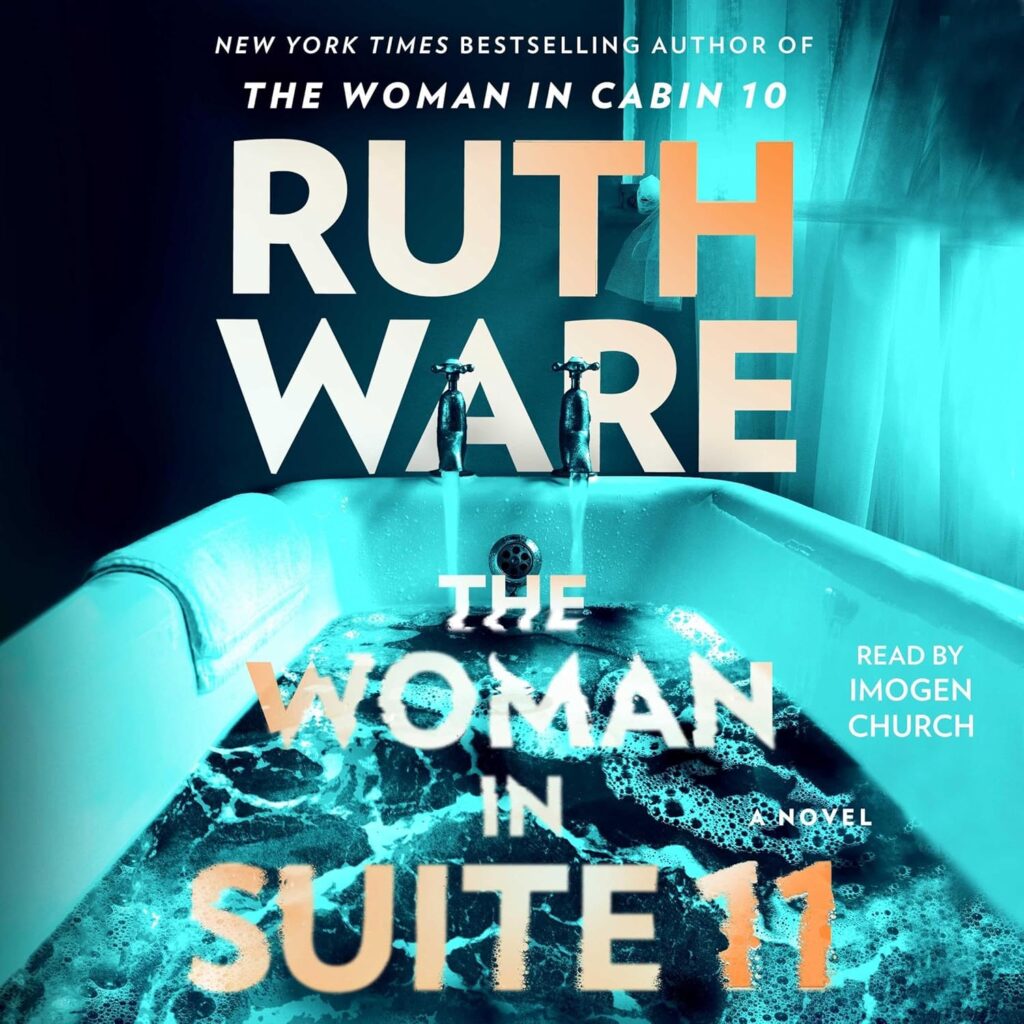Zbigniew Brzezinski stands as a towering, albeit perhaps insufficiently recognized, figure in the landscape of 20th-century American foreign policy. His tenure as President Jimmy Carter’s National Security Advisor and his broader influence on shaping global strategy during the Cold War era cemented his position as a key architect of modern international relations. In “Zbig: The Life of Zbigniew Brzezinski,” Edward Luce, a highly esteemed columnist and political writer, undertakes the ambitious task of providing an intimate and comprehensive biography of this influential strategist, aiming to restore his legacy to its deserved prominence. This biography promises a deep dive into the life and mind of a man who played a crucial role in navigating the complexities of the Cold War and whose insights continue to resonate in today’s geopolitical climate. This review will explore the narrative crafted by Luce, the central themes that emerge, the author’s literary approach, and ultimately offer an assessment of why “Zbig: The Life of Zbigniew Brzezinski book review” is a compelling read for anyone seeking to understand the forces that shaped the late 20th century and continue to influence the 21st.
From Warsaw to Washington: Navigating the Narrative Landscape of “Zbig”
Edward Luce meticulously charts the remarkable trajectory of Zbigniew Brzezinski’s life, commencing with his formative years in Warsaw. The biography poignantly depicts Brzezinski’s childhood experiences amidst the turmoil of Nazi and Soviet occupations, events that profoundly shaped his lifelong commitment to liberty and his deep-seated understanding of totalitarianism. As a young boy, he witnessed firsthand the devastation of his homeland, an experience that forged his fierce resentment towards the forces that sought to extinguish freedom. The narrative then follows his family’s emigration to North America during the Second World War, a pivotal moment that set him on a path of academic excellence, ultimately leading him to specialize in Sovietology. Even in his early academic pursuits, Brzezinski displayed a strong opposition to the Soviet Union’s expansionist ambitions.
Luce expertly chronicles Brzezinski’s ascent in the Washington political sphere, detailing his roles as an advisor to various American presidents, from John F. Kennedy to Barack Obama. A significant portion of the biography naturally focuses on his crucial tenure as National Security Advisor under President Jimmy Carter, a period marked by intense Cold War tensions and pivotal global events. Beyond his direct involvement in policy-making, the book illuminates Brzezinski’s substantial intellectual contributions to the understanding of international relations and his continued influence on foreign policy discourse long after leaving office. The biography frames Brzezinski’s life within a significant historical arc, noting his passing in 2017, a few months into Donald Trump’s presidency, underscoring his enduring relevance across decades of American leadership. Interestingly, the book commences its narrative not in Warsaw, but in Montreal, where Brzezinski resided during the early years of World War II while his father served as the Polish consul general. It is also noteworthy that Brzezinski did not become an American citizen until adulthood, a testament to his eventual deep integration into the fabric of American policymaking.
The personal history of Zbigniew Brzezinski as a Polish émigré played an undeniable and profound role in shaping his worldview. Witnessing the brutal occupations of his homeland by both Nazi Germany and the Soviet Red Army instilled in him a visceral understanding of the dangers of totalitarianism. This firsthand experience fueled his intellectual pursuits, leading him to become a leading expert on the Soviet Union and its vulnerabilities. His insights were not merely academic; they were deeply informed by the tragic realities he experienced in his youth. Furthermore, Luce’s biography appears to highlight the contrast between Brzezinski’s background as a foreign-born intellectual and the established “gentlemanly class of WASPs” who had traditionally dominated US foreign policy. This suggests a narrative thread exploring the evolving nature of American leadership in international affairs, with figures like Brzezinski challenging and ultimately reshaping the traditional power structures within Washington.
Exploring the Characters and Core Themes
At the heart of “Zbig” lies the compelling portrayal of Zbigniew Brzezinski himself. Luce delves into his key characteristics, revealing a man of formidable intellect and ambition, traits often intertwined with a perceived intellectual arrogance. Some accounts even describe him as having an “irascible” nature. The biography also introduces the significant individuals who populated Brzezinski’s world. Foremost among these is President Jimmy Carter, whose relationship with Brzezinski was central to his time as National Security Advisor. The book also explores his intriguing connection with Pope John Paul II, a fellow Pole whose shared heritage and anti-communist sentiments fostered a unique bond. Looming large throughout Brzezinski’s life and the biography is his complex and often fraught relationship with his intellectual rival, Henry Kissinger.
Several core themes emerge as central to “Zbig.” The book meticulously examines the demise of the Soviet Union, a historical event in which Brzezinski played a significant role, both intellectually and through his policy recommendations. The overarching context of the Cold War and its profound impact on global power dynamics forms another crucial theme explored in the biography. Luce also delves into Brzezinski’s understanding of America’s role in the world, his articulation of its strategic imperatives, and his vision for its global leadership. The biography also grapples with the inherent tension between intellectual ideals and the often harsh realities of global politics, a recurring challenge that Brzezinski navigated throughout his career. His belief in the importance of deeply understanding one’s adversary, of being able to “speak the enemy’s language,” is another key theme highlighted. Furthermore, the book explores Brzezinski’s advocacy for human rights as an integral component of American foreign policy, a stance that shaped his approach to the Soviet bloc. Interestingly, despite his often assertive foreign policy views, Brzezinski is portrayed as neither a simple hawk nor a dove, but rather as a more nuanced and independent thinker. This is further evidenced by his later criticism of George W. Bush’s Iraq War and his early endorsement of Barack Obama, demonstrating a willingness to transcend traditional party lines in his assessments of American foreign policy. His independent streak and his commitment to his convictions, even when they went against the prevailing Washington consensus, are recurring points.
One of the significant aspects that appears to be illuminated in Luce’s biography is Brzezinski’s remarkable prescience regarding geopolitical developments. He seems to have possessed a keen ability to foresee future trends, particularly concerning the internal weaknesses and eventual decline of the Soviet Union. Moreover, some accounts suggest he was among the first to recognize the potential threat posed by figures like Vladimir Putin, indicating a long-term strategic vision that extended beyond the immediate concerns of the Cold War. This ability to anticipate future challenges adds another layer of significance to his legacy and makes the biography particularly relevant for understanding contemporary global politics.
Luce’s Narrative Style and Language
Edward Luce, as the biographer, brings his considerable experience as a leading columnist for the Financial Times to bear on this project. He is consistently described as one of the “finest columnists and political writers” of our time, possessing “sharpest political pens,” and even being hailed as a “biographer of genius”. Despite the potentially dense subject matter, the book is lauded for its accessibility, being described as “highly readable,” “engaging,” and possessing a narrative drive that makes it feel “more like a historical detective story” than a dry academic text. This engaging style does not come at the expense of scholarly rigor, as the biography is also noted for its meticulous research. Luce also strives for a balanced portrayal of his subject, presenting Brzezinski with all his complexities, including his flaws, as suggested by descriptions like “warts and all” and acknowledgments of his “intellectual arrogance and sometimes ruthless ambition”. The Literary Review praises Luce’s “impressive account” and “empathetic portrayal,” highlighting his access to Brzezinski’s personal papers and diaries, which likely adds significant depth and nuance to the narrative. However, it is worth noting a perspective from Kirkus Reviews, which found the narrative “sprawling” and “a touch too long,” and suggested a potential lack of in-depth character analysis in certain areas.
Given Edward Luce’s prominent role as a commentator on American politics and international affairs for the Financial Times, his approach to this biography likely benefits from a sharp, analytical, and globally informed perspective. His work in journalism requires him to synthesize complex information and present it in an engaging manner for a broad audience, skills that appear to have translated effectively into this biographical undertaking.
Reflections on Brzezinski’s Life and Legacy Through Luce’s Lens
Through Edward Luce’s biography, Zbigniew Brzezinski emerges as a figure of immense intellectual power and unwavering conviction. He was a man deeply shaped by the historical traumas of his youth, which instilled in him a profound understanding of the forces at play in global politics. Luce’s portrayal reveals not just a strategic thinker, but a man driven by a deep-seated desire to see the triumph of liberty over totalitarianism. The book effectively argues for a re-evaluation of Brzezinski’s significance, placing him alongside other Cold War giants like Kissinger and Kennan, and perhaps even suggesting his insights were more prescient in the long run.
The themes that resonated most strongly were Brzezinski’s unwavering focus on the Soviet Union’s internal contradictions and his early recognition of its eventual demise. His understanding of the importance of human rights as a tool in foreign policy also stands out as particularly forward-thinking. The complex relationship with Kissinger, as depicted by Luce, offers a fascinating study in contrasts between two influential figures with differing approaches to achieving American foreign policy goals. Brzezinski’s predictions, particularly those concerning Russia and its relationship with Ukraine, take on a chilling relevance in today’s geopolitical context. His consistent emphasis on Ukraine’s pivotal role in preventing Russia from becoming a resurgent empire feels particularly pertinent given current events. This foresight underscores the enduring value of understanding Brzezinski’s strategic thinking.
The Enduring Strengths of “Zbig”: A Biography That Illuminates
“Zbig: The Life of Zbigniew Brzezinski” possesses several notable strengths. The depth and meticulousness of Luce’s research are evident throughout the biography, providing a rich and detailed account of Brzezinski’s life and career. Luce’s writing style is a significant asset, making complex geopolitical issues accessible and engaging for a broad readership. The biography achieves a commendable balance in its portrayal of Brzezinski, acknowledging his strengths while also addressing his potential flaws and complexities. One of the book’s central achievements is its success in restoring Brzezinski to his rightful place in the pantheon of significant 20th-century strategists, highlighting his often-underappreciated contributions. It offers valuable insights into the intricacies of the Cold War and the evolution of American foreign policy during a critical period. The inclusion of Brzezinski’s personal diaries provides a unique and intimate perspective into his thoughts and motivations, adding a layer of authenticity to the narrative. While the snippets primarily refer to Gati’s edited volume on Brzezinski, the positive reception of perspectives from those who knew and worked with Brzezinski suggests that Luce’s biography, drawing on similar sources and interviews, likely offers valuable firsthand accounts as well. The access to Brzezinski’s personal diaries is a particularly significant strength, promising a deeper understanding of his inner world and the rationale behind his strategic decisions.
Nuances and Considerations: Examining Potential Weaknesses
While “Zbig” appears to be a comprehensive and insightful biography, some potential weaknesses should be considered. The sheer length of the book, noted at 560 pages and described as “a touch too long” , might be daunting for some readers. Additionally, the Kirkus Reviews critique regarding a potential lack of in-depth character analysis in certain instances, where Brzezinski’s strong convictions might have bordered on obsessiveness without full exploration, is a point worth acknowledging. It is also possible that the biography’s primary focus on Brzezinski’s geopolitical thinking might, for some readers, overshadow other aspects of his life or the broader historical context in which he operated. While the reviews generally praise the book’s balance, readers should be aware of the biographer’s aim to elevate Brzezinski’s historical standing, which might lead to a slightly more sympathetic portrayal.
Voices from Amazon
Initial reader reception on Amazon appears overwhelmingly positive. Scott Norman, in a 5-star review titled “A Masterpiece!!!”, recommends it as essential reading for understanding the current situation with Russia and Ukraine. Dave Tatera also awarded it 5 stars, praising the “good material,” ease of reading, and insightful historical analysis, stating that Luce “gets to the heart of Zbigniew”. Phil from the Hill, another 5-star reviewer, describes it as a “fantastic, insightful adventure,” highlighting its contribution to filling a gap in the foreign policy literature compared to the extensive works on Kissinger. G.A. Mackenzie from Canada echoes this sentiment with a 5-star review, calling it a “brilliant historical biography with crucial lessons for our current malaise”. The book currently holds a perfect 5.0 out of 5 stars rating on Amazon, based on these initial reviews, indicating a strong positive first impression among readers.
Notable Quotes and Visual Potential
Several prominent figures have offered high praise for “Zbig.” Susan Glasser, coauthor of New York Times bestsellers, calls it “a brilliant study of an American statesman, a compelling biography of both a man and a moment, the beginning of the end of the Cold War,” emphasizing its relevance given the resurgent threat from Russia. Anne Applebaum, author of “Autocracy, Inc.,” deems it “not only the definitive biography of Zbigniew Brzezinski… but also a book with real insights into the nature of power”. Jon Meacham, author of “And Then There Was Light,” describes it as “a sensitive, deeply researched, and fair-minded portrait of a man who had a remarkable journey and has left America, and the world, the most significant of legacies”. Francis Fukuyama, author of “Liberalism and Its Discontents,” hails it as “a magnificent and highly readable chronicle of the life and times of one of the most important American strategists of the 20th century”. David Rubenstein, author of “The Highest Calling,” declares it “the best book ever written about a national security advisor” and “by far the best biography on Brzezinski”. David Ignatius, New York Times bestselling author, calls it “an astonishing biography that will change the way history looks at Zbigniew Brzezinski and the Cold War,” highlighting Luce’s honesty about Brzezinski’s flaws and suggesting that readers will likely conclude that “Zbig was the true visionary” compared to Kissinger. William Dalrymple, author of “The Golden Road,” considers Edward Luce to have shown himself to be “a biographer of genius” with this work. Misha Glenny, author of “McMafia,” notes Brzezinski’s prescience regarding the squandering of opportunities after the fall of communism and his early recognition of Vladimir Putin as the West’s nemesis, concluding that Luce’s “meticulous and engaging biography is beautifully balanced”.
To enhance this review, a cover image of “Zbig: The Life of Zbigniew Brzezinski” would be beneficial. Additionally, a photograph of Zbigniew Brzezinski himself, perhaps during his time as National Security Advisor alongside President Jimmy Carter , would provide valuable visual context. An image of the author, Edward Luce , could also be included to further personalize the review. Considering the book’s emphasis on Brzezinski’s insights into Russia and Ukraine, a powerful quote from Brzezinski on this topic would be particularly impactful, such as: “It cannot be stressed enough that without Ukraine, Russia ceases to be an empire, but with Ukraine suborned and then subordinated, Russia automatically becomes an empire”.
Why “Zbig: The Life of Zbigniew Brzezinski” Deserves a Place on Your Reading List
In conclusion, “Zbig: The Life of Zbigniew Brzezinski” by Edward Luce offers a masterful and deeply researched portrait of a pivotal figure in American foreign policy. This biography successfully illuminates the life and legacy of Zbigniew Brzezinski, underscoring his significant role in shaping the course of the Cold War and his enduring insights into global power dynamics. Luce’s engaging writing style and balanced perspective make this substantial work accessible and compelling for readers interested in history, political science, and biography. The book’s strengths lie in its thorough research, nuanced portrayal of Brzezinski, and its success in highlighting his often-underappreciated contributions to American foreign policy. While its length might be a consideration for some, the depth of analysis and the wealth of information provided make it a worthwhile undertaking. The overwhelmingly positive early reader reviews and the strong endorsements from prominent figures further attest to the book’s quality and significance. For anyone seeking a deeper understanding of the Cold War, the complexities of American foreign policy, and the life of a truly influential strategist, “Zbig: The Life of Zbigniew Brzezinski” is highly recommended. It is a biography that not only recounts history but also offers valuable perspectives on the challenges and opportunities facing the world today. Do yourself a favor and delve into the pages of “Zbig” to gain a richer understanding of the man who helped shape our modern world.
“Enjoyed this review? Discover more in our Politics Reviews section.”





